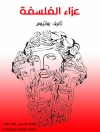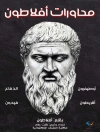In ‘Of Consolation to Helvia, ‘ Seneca, the renowned Stoic philosopher and playwright, addresses the themes of grief and suffering with profound eloquence and emotional depth. Written as a letter to his mother, Helvia, this work is a poignant exploration of the philosophical underpinnings of consolation, framed within the context of Stoic thought. Combining rhetorical brilliance with sincere sentiment, Seneca reflects on the nature of loss, the inevitability of change, and the importance of virtue, all while employing a style that balances philosophical discourse with personal introspection. Seneca, born in Corduba (modern-day Córdoba) in 4 BCE, rose to prominence in Rome as both a statesman and philosopher, deeply influenced by the Stoic tenets of his time. His experiences with tragedy, particularly the political intrigue and personal losses he endured, shaped his understanding of human emotions and the philosophical means to navigate them. This rich backdrop, along with his skill as a communicator, lends an authentic emotional gravitas to his consolatory message, bridging the gap between personal sorrow and universal themes of resilience. I wholeheartedly recommend ‘Of Consolation to Helvia’ to readers interested in philosophy, literature, and the human condition. Through its intimate tone and insightful reflections, this work offers not only solace but also a roadmap for understanding the complexities of life’s hardships. Seneca’s innovative blend of personal and philosophical discourse makes this text an invaluable resource for those seeking wisdom in the face of adversity.
Про автора
Lucius Annaeus Seneca, known simply as Seneca, was a prominent Roman philosopher, statesman, orator, and playwright of the 1st century AD, known for his contributions to Stoic philosophy. Born around 4 BC in Corduba (in modern-day Spain), Seneca was raised in Rome, where he was educated in rhetoric and philosophy. He served as an advisor to Emperor Nero until falling out of favor and being driven to commit suicide in 65 AD. Seneca’s literary corpus is vast and varied, including philosophical essays, letters, and tragedies. His style is characterized by moral rigor and an emphasis on the Stoic virtues of wisdom, courage, justice, and temperance. Of particular note is his work ‘Of Consolation to Helvia, ‘ a deeply personal letter written to his mother, Helvia, to console her during his first period of exile in Corsica. In this treatise, Seneca employs Stoic principles to counsel resilience in the face of adversity. The work showcases his ability to merge philosophical discourse with moving rhetorical finesse, making it a cornerstone of Stoic literature. Seneca’s writings have had a lasting impact on later generations, influencing early Christian thought, the Renaissance, and the development of humanist philosophy.












